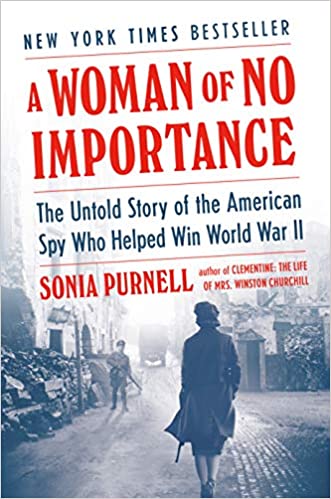موضوعات
آموزش و پرورش
ادبیات و زبان
پزشکی، دندانپزشکی و داروسازی
تاریخ و جغرافیا
داستان و رمان
دیگر
دین و فلسفه
روانشناسی
ریاضیات و آمار
سلامتی، تناسب اندام و رژیم غذایی
شیمی و پلیمر
علوم اجتماعی و حقوق
علوم زیستی و بیوتکنولوژی
فیزیک و نجوم
کامپیوتر و اینترنت
کتابهای کودکان و داستان
کسب و کار و اقتصاد
کشاورزی و دامپزشکی و غذا
معماری
مهندسی و فناوری
هنر و تئاتر
محصولات
Hope for a Heated Planet: How Americans Are Fighting Global Warming and Building a Better Future - Original PDF
نویسندگان: خلاصه: am finishing this book in the final days of the George W. Bush adminis- tration. For those of us who love the environment and long for peace, it has been a dark time. Through it, I have often thought of the words of the poet Theodore Roethke that I first heard from scholar and activist Robert Jay Lifton: “In a dark time, the eye begins to see.” The first light of dawn is now visible as the Democratic candidate, Senator Barack Obama, pushed by a growing grassroots movement, embraces action on climate change. To a lesser degree, though far more than President Bush, so does the Republican contender, Senator John McCain. That was far from the case when I began this project at the height of the president’s wartime popularity. This has turned out to be a book as much about hope and democracy as it is about global warming. Its central theme is that you and I can change history. What we believe, what actions we take, actually matter. It is an idea central to democracy. And it should give us hope. I disagree, strongly, with those who believe the American public has turned into a hopeless gaggle of consumers and couch potatoes who are content to let others rule their lives—or destroy the planet. At the height of President Bush’s popularity and influence it may have appeared that way. But national security and environmental degradation (especially global climate change) are complex, difficult, and abstract sub- jects. It has taken some time for us Americans to grasp the gravity of our situation, from melting ice caps to Iraq. This is especially true when our media mostly cover the White House and the Pentagon—regardless of the occupants—and report each utterance as gospel. Meanwhile, most of us are busy with jobs, families, and problems near home that we can actually see and do something about. The result has been that global warming—caused by the vast outpour- x P REFACE ings of carbon dioxide (CO2) and other pollutants from our cars, buildings, and factories—has increased and is picking up speed. But at the same time, so has a growing and revived environmental movement. It is joined now with new allies from the religious community, business, labor, medical and public health professionals, educators, and more. This new climate move- ment has deep roots in the big environmental groups, too often ignored or derided, that have been working to warn us and prevent global climate change since the elder George Bush’s administration in the 1980s. Their work is now bearing fruit. The public is becoming aroused and engaged. And, as a result, we will have a new, much more climate-friendly president and Congress in 2009. This book tells that story and also ex- plains the basics of climate change and its effects on human health and well-being—not just on polar bears and penguins. But Hope for a Heated Planet is finally about solutions to our dilemma. I’ve tried to give you the best steps you can take, both personal and political, to make a difference and to get involved. Like most authors, I like to imagine, of course, that our new president will take to heart every word I have poured out here. But even more impor- tant is that you do. My mother, Margaret Kirkland Musil, died after ninety- one wonderful years as I was writing. She taught me to love life, to love nature, to learn, to have faith, and to act on my beliefs. My first grandchild, Catherine Kirkland Unruh, was born shortly after. She will need the same lessons. So will all our children and grandchildren. Global climate change, we now know, can be prevented by building a vi- brant, healthy economy that does away with the belching furnaces, smoke- stacks, and combustion engines from the outmoded technologies of the nineteenth and twentieth centuries. But in a democracy, that will depend not on our new president, or the one after that. It is up to us. And the signs now are that many, many citizens and their organizations in this great na- tion are indeed aroused. But to prevail, we will need even more. That is really why I have written. I want you and your family and friends to join with me and millions of other Americans in making history. Nobody else can, or should, do it for youThe Audacity of Hope. Thoughts on Reclaiming the American Dream - Original PDF
نویسندگان: خلاصه: Republicans and Democrats ON MOST DAYS, I enter the Capitol through the basement. A small subway train carries me from the Hart Building, where my office is located, through an underground tunnel lined with the flags and seals of the fifty states. The train creaks to a halt and I make my way, past bustling staffers, maintenance crews, and the occasional tour group, to the bank of old elevators that takes me to the second floor. Stepping off, I weave around the swarm of press that normally gathers there, say hello to the Capitol Police, and enter, through a stately set of double doors, onto the floor of the U.S. Senate. The Senate chamber is not the most beautiful space in the Capitol, but it is imposing nonetheless. The dun-colored walls are set off by panels of blue damask and columns of finely veined marble. Overhead, the ceiling forms a creamy white oval, with an American eagle etched in its center. Above the visitors’ gallery, the busts of the nation’s first twenty vice presidents sit in solemn repose. And in gentle steps, one hundred mahogany desks rise from the well of the Senate in four horseshoe-shaped rows. Some of these desks date back to 1819, and atop each desk is a tidy receptacle for inkwells and quills. Open the drawer of any desk, and you will find within the names of the senators who once used it—Taft and Long, Stennis and Kennedy—scratched or penned in the senator’s own hand. Sometimes, standing there in the chamber, I can imagine Paul Douglas or Hubert Humphrey at one of these desks, urging yet again the adoption of civil rights legislation; or Joe McCarthy, a few desks over, thumbing through lists, preparing to name names; or LBJ prowling the aisles, grabbing lapels and gathering votes. Sometimes I will wander over to the desk where Daniel Webster once sat and imagine him rising before the packed gallery and his colleagues, his eyes blazing as he thunderously defends the Union against the forces of secession. But these moments fade quickly. Except for the few minutes that it takes to vote, my colleagues and I don’t spend much time on the Senate floor. Most of the decisions— about what bills to call and when to call them, about how amendments will be handled and how uncooperative senators will be made to cooperate—have been worked out well in advance by the majority leader, the relevant committee chairman, their staffs, and (depending on the degree of controversy involved and the magnanimity of the Republican handling the bill) their Democratic counterparts. By the time we reach the floor and the clerk starts calling the roll, each of the senators will have determined—in consultation with his or her staff, caucus leader, preferred lobbyists, interest groups, constituent mail, and ideological leanings—just how to position himself on the issue. It makes for an efficient process, which is much appreciated by the members, who are juggling twelve- or thirteen-hour schedules and want to get back to their offices to meet constituents or return phone calls, to a nearby hotel to cultivate donors, or to the television studio for a live interview. If you stick around, though, you may see one lone senator standing at his desk after the others have left, seeking recognition to deliver a statement on the floor. It may be an explanation of a bill he’s introducing, or it may be a broader commentary on some unmet national challenge. The speaker’s voice may flareRip by XmosRips with passion; his arguments—about cuts to programs for the poor, or obstructionism on judicial appointments, or the need for energy independence—may be soundly constructed. But the speaker will be addressing a near-empty chamber: just the presiding officer, a few staffers, the Senate reporter, and C-SPAN’s unblinking eye. The speaker will finish. A blue-uniformed page will silently gather the statement for the official record. Another senator may enter as the first one departs, and she will stand at her desk, seek recognition, and deliver her statement, repeating the ritual. In the world’s greatest deliberative body, no one is listeningKilling Hope_ US Military and CIA Interventions Since World War II. Part 1-Zed Books Ltd (2003) - Original PDF
نویسندگان: خلاصه: Introduction A Brief History of the Cold War and Anti-communism Our fear that communism might someday take over most of the world blinds us to the fact that anti- communism already has. —Michael Parenti1 It was in the early days of the fighting in Vietnam that a Vietcong officer said to his American prisoner: "You were our heroes after the War. We read American books and saw American films, and a common phrase in those days was "to be as rich and as wise as an American". What happened?"2 An American might have been asked something similar by a Guatemalan, an Indonesian or a Cuban during the ten years previous, or by a Uruguayan, a Chilean or a Greek in the decade subsequent. The remarkable international goodwill and credibility enjoyed by the United States at the close of the Second World War was dissipated country-by-country, intervention-by-intervention. The opportunity to build the war- ravaged world anew, to lay the foundations for peace, prosperity and justice, collapsed under the awful weight of anti-communism. The weight had been accumulating for some time; indeed, since Day One of the Russian Revolution. By the summer of 1918 some 13,000 American troops could be found in the newly-born Union of Soviet Socialist Republics. Two years and thousands of casualties later, the American troops left, having failed in their mission to "strangle at its birth" the Bolshevik state, as Winston Churchill put it.3 The young Churchill was Great Britain's Minister for War and Air during this period. Increasingly, it was he who directed the invasion of the Soviet Union by the Allies (Great Britain, the US, France, Japan and several other nations) on the side of the counter-revolutionary "White Army". Years later, Churchill the historian was to record his views of this singular affair for posterity: Were they [the Allies] at war with Soviet Russia? Certainly not; but they shot Soviet Russians at sight. They stood as invaders on Russian soil. They armed the enemies of the Soviet Government. They blockaded its ports, and sunk its battleships. They earnestly desired and schemed its downfall. But war—shocking! Interference—shame! It was, they repeated, a matter of indifference to them how Russians settled their own internal affairs. They were impartial—Bang!4 What was there about this Bolshevik Revolution that so alarmed the most powerful nations in the world? What drove them to invade a land whose soldiers had recently fought alongside them for over three years and suffered more casualties than any other country on either side of the World War? The Bolsheviks had had the audacity to make a separate peace with Germany in order to take leave of a war they regarded as imperialist and not in any way their war, and to try and rebuild a terribly weary and devastated Russia. But the Bolsheviks had displayed the far greater audacity of overthrowing a capitalist- feudal system and proclaiming the first socialist state in the history of the world. This was uppityness writ incredibly large. This was the crime the Allies had to punish, the virus which had to be eradicated lest it spread to their own people. 6 The invasion did not achieve its immediate purpose, but its consequences were nonetheless profound and persist to the present day. Professor D.F. Fleming, the Vanderbilt University historian of the Cold War, has noted: For the American people the cosmic tragedy of the interventions in Russia does not exist, or it was an unimportant incident long forgotten. But for the Soviet peoples and their leaders the period was a time of endless killing, of looting and rapine, of plague and famine, of measureless suffering for scores of millions— an experience burned into the very soul of a nation, not to be forgotten for many generations, if ever. Also for many years the harsh Soviet regimentations could all be justified by fear that the capitalist powers would be back to finish the job. It is not strange that in his address in New York, September 17, 1959, Premier Khrushchev should remind us of the interventions, "the time you sent your troops to quell the revolution", as he put it.5 In what could be taken as a portent of superpower insensitivity, a 1920 Pentagon report on the intervention reads: "This expedition affords one of the finest examples in history of honorable, unselfish dealings ... under very difficult circumstances to be helpful to a people struggling to achieve a new liberty."6 History does not tell us what a Soviet Union, allowed to develop in a "normal" way of its own choosing, would look like today. We do know, however, the nature of a Soviet Union attacked in its cradle, raised alone in an extremely hostile world, and, when it managed to survive to adulthood, overrun by the Nazi war machine with the blessings of the Western powers. The resulting insecurities and fears have inevitably led to deformities of character not unlike that found in an individual raised in a similar life- threatening manner. We in the West are never allowed to forget the political shortcomings (real and bogus) of the Soviet Union; at the same time we are never reminded of the history which lies behind it. The anti-communist propaganda campaign began even earlier than the military intervention. Before the year 1918 was over, expressions in the vein of "Red Peril", "the Bolshevik assault on civilization", and "menace to world by Reds is seen" had become commonplace in the pages of the New York Times. During February and March 1919, a US Senate Judiciary Subcommittee held heatings before which many "Bolshevik horror stories" were presented. The character of some of the testimony can be gauged by the headline in the usually sedate Times of 12 February 1919: DESCRIBE HORRORS UNDER RED RULE. R.E. SIMONS AND W.W. WELSH TELL SENATORS OF BRUTALITIES OF BOLSHEV1KI— STRIP WOMEN IN STREETS—PEOPLE OF EVERY CLASS EXCEPT THE SCUM SUBJECTED TO VIOLENCE BY MOBSadvance rubber composites - Original PDF
نویسندگان: خلاصه: Morphology–Property Relationship in Rubber-Based Nanocomposites: Some Recent Developments, by A. K. Bhowmick, M. Bhattacharya, S. Mitra, K. Dinesh Kumar, P. K. Maji, A. Choudhury, J. J. George and G. C. Basak; * Rubber–Clay Nanocomposites: Some Recent Results, by Amit Das, De-Yi Wang, Klaus Werner Stöckelhuber, René Jurk, Juliane Fritzsche, Manfred Klüppel and Gert Heinrich; * Surface Modification of Fillers and Curatives by Plasma Polymerization for Enhanced Performance of Single Rubbers and Dissimilar Rubber/Rubber Blends, by J. W. M. Noordermeer, R. N. Datta, W. K. Dierkes, R. Guo, T. Mathew, A. G. Talma, M. Tiwari and W. van Ooij; * Recent Developments on Thermoplastic Elastomers by Dynamic Vulcanization, by R. Rajesh Babu and Kinsuk Naskar; * PTFE-Based Rubber Composites for Tribological Applications, by M. S. Khan and G. HeinrichThe Washington Manual Cardiology Subspecialty Consult (4th Edition) - Epub + Converted Pdf
نویسندگان: خلاصه: The Washington Manual Cardiology Subspecialty Consult (The Washington Manual Subspecialty Consult Series) 4th Edition by Dr. Justin Sadhu MD (Author), Dr. Mustafa Husaini (Author), Dominique Williams MDThe Washington Manual of Medical Therapeutics (37th Edition) - Epub + Converted Pdf
نویسندگان: خلاصه: The Washington Manual of Medical Therapeutics Thirty-Seventh, North American Edition by Siri Ancha (Author), Christine Auberle (Author), Devin Cash (Author), Mohit Harsh (Author), John Hickman (Author), Carole Kounga (If You Tell: A True Story of Murder, Family Secrets, and the Unbreakable Bond of Sisterhood Paperback – December 1, 2019 - Epub + Converted PDF
نویسندگان: خلاصه: If You Tell: A True Story of Murder, Family Secrets, and the Unbreakable Bond of Sisterhood Paperback – December 1, 2019 by Gregg Olsen (Author)آیا کتاب مورد نظر هنوز بر روی سایت قرار نگرفته است؟ جای نگرانی نیست! کافی است بر روی گزینه سفارش کتاب کلیک کرده و درخواست خود را ثبت کنید. در کمتر از چند ساعت کتاب شما را آماده خواهیم کرد.

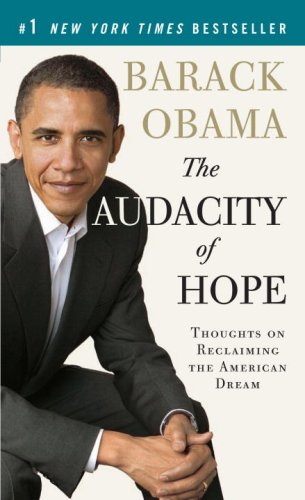
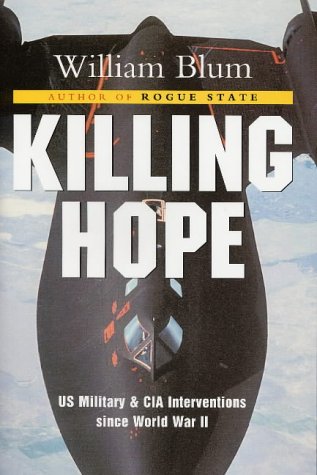
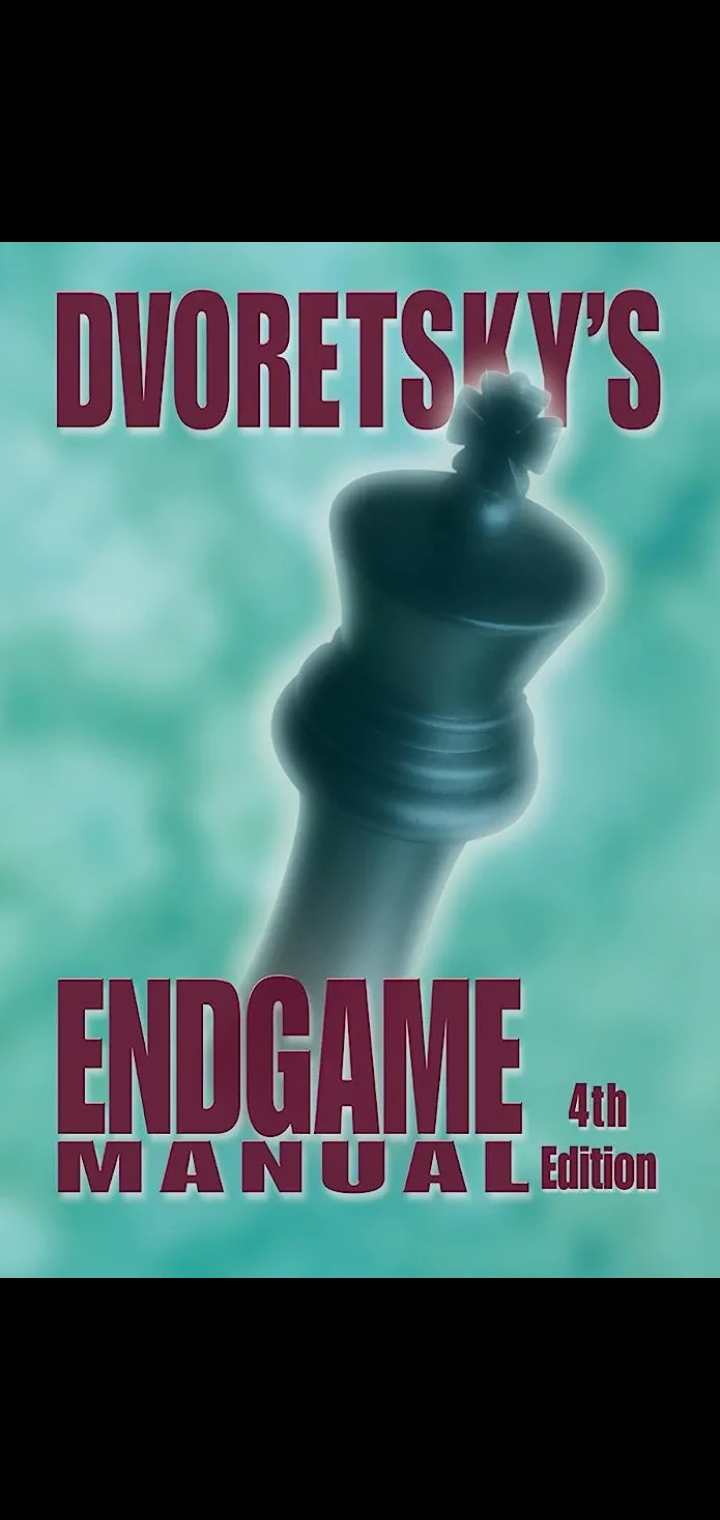

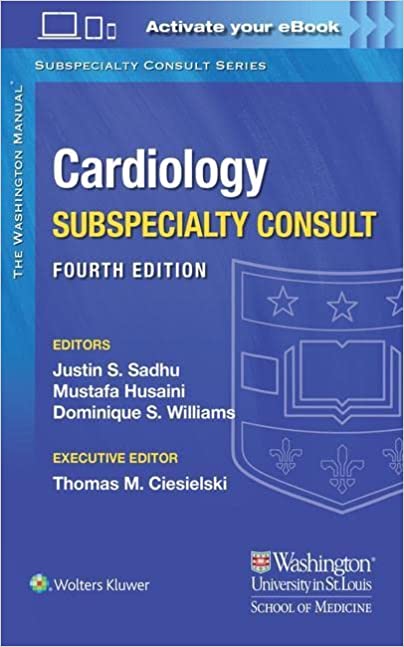

![Enemy Within: The Executive Office #3[2017] - Epub + Converted PDF](https://dl.libsan.ir/images/1/12/43_63b0151e64f1f.jpg)

